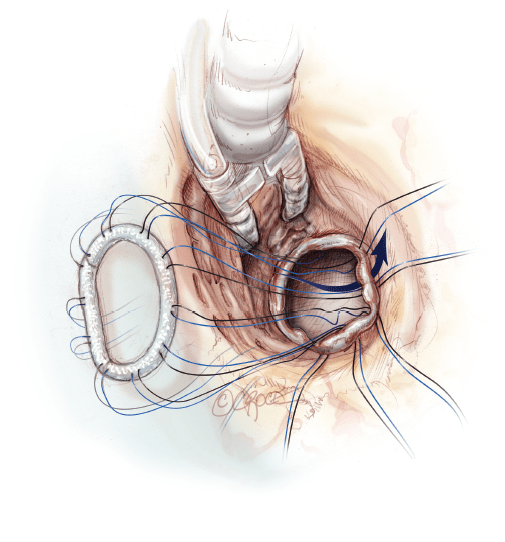Dr Cheng He is a Cardiothoracic Surgeon offering specialist care to adult heart and lung patients in Gold Coast
Dr Cheng He is a Cardiothoracic Surgeon offering specialist care to adult heart and lung patients in Gold Coast
Cardiac Surgery
- Coronary Artery Bypass Grafting
- Aortic, Mitral and Tricuspid Valve Surgery
- Ablation for Atrial Fibrillation
- VATS Left Atrial Appendage Closure
- Aortic Surgery
Thoracic Surgery
- Minimally Invasive Lung Cancer Surgery
- Pneumothorax Surgery
- Chest Wall/Mediastinal Tumour Surgery
- Rib Plating for Fractures
- Sympathectomy for Palmar Hyperhidrosis
- Insertion of PleurX Catheter
Diagnostic Procedures
- Flexible/Rigid Bronchoscopy
- Mediastinoscopy
- VATS Lymph Node Biopsy
- Pleural Biopsy
- Lung Biopsy

Contact Dr Cheng He
Rheumatic Heart Disease
Background
Rheumatic fever is a condition characterized by widespread inflammation affecting a number of organs in the body, including the heart. It occurs after an infection of the throat caused by the bacterium Group A streptococcus. The resulting immune response targets both the bacteria and some of the body’s own tissues that contain similar molecules to those in the bacteria, including the heart, skin, joints and nervous system. Rheumatic heart disease results from persisting inflammation of the heart after acute or recurrent episodes of rheumatic fever. It typically affects the valves of the heart, especially the mitral and aortic valves. Chronic inflammation may cause narrowing of the valves resulting in decreased blood flow through the heart or leakage of the valves causing blood to flow in the wrong direction. This may eventually lead to arrhythmias, such as atrial fibrillation, or heart failure, where the heart is unable to pump enough blood to meet the body’s needs.

Risk factors
Rheumatic fever typically affects children between five and 15 years old for the first time but the effects of rheumatic heart disease often first present in adulthood. Environmental factors such as poor sanitation and crowded living conditions increase the transmission of the bacteria that cause rheumatic heart disease.
Signs and symptoms
Following a sore throat in childhood, heart disease may be present for many years without any symptoms. Symptoms that may occur due to heart damage include fatigue, shortness of breath on exertion and chest pain. In addition, a heart murmur may be heard to suggest dysfunction of one or more of the heart valves. Symptoms reflecting inflammation elsewhere in the body may include painful and sore joints, skin nodules and uncontrollable body movements.
Diagnosis
Blood tests may be performed in order to detect components of the inflammatory and immune responses that cause rheumatic heart disease. Diagnosis of damage to the heart is primarily achieved by echocardiography, which is an ultrasound imaging of the heart. This can detect abnormally narrow, thickened or leaky valves as well abnormal function of the heart’s chambers.
Prevention and management
Prevention of rheumatic heart disease centers on early detection and treatment of streptococcal throat infections that cause rheumatic fever. This involves appropriate antibiotic therapy. If moderate or severe heart disease is established, an operation may be necessary to repair or replace the damaged heart valves. This may involve the insertion of a tube and balloon into the heart to dilate a narrowed heart valve through ‘balloon valvotomy’. Alternatively, surgical repair or replacement of a damaged heart valve may be performed. The selection of the appropriate procedure is dependent on a number of factors, including the extent of disease of the patient and the level of expertise of the treating doctor.
These procedures aim to improve symptoms and quality of life, restore heart function and prevent deterioration of the heart that may lead to complications such as arrhythmias and heart failure. As with all operations, the risks should be weighed against the benefits and discussed with your doctor.
For more information, please visit the following websites:
Arrange your consultation
To make an appointment with Dr He please contact us via phone, e-mail or fax.
Most outpatients will have a referral letter from their general practitioner or medical specialist. If you do not have one we can guide you through this process. Please don’t hesitate to contact us.





